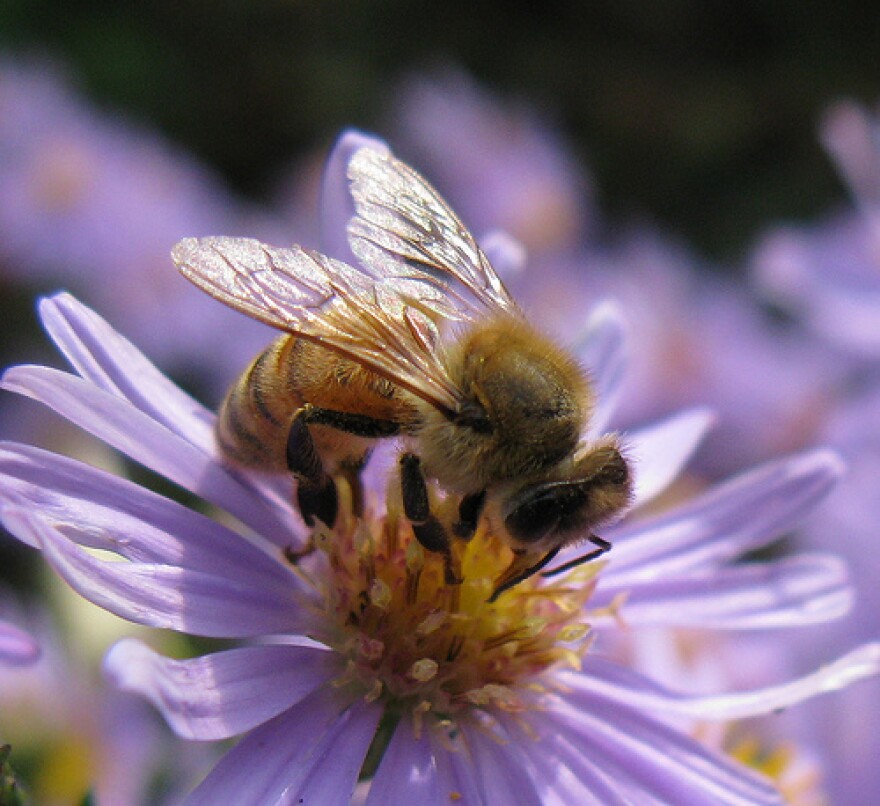The company Bayer CropScience says it wants insect experts to find out what's causing a massive drop in the bee population.
The company broke ground on a bee research facility last week and plans to add a hundred employees at it expands in Research Triangle Park. Bayer hopes scientists will be working with bees at the new building by the end of the year. Iain Kelly of Bayer CropScience says other insects and diseases are invading much of the bee's natural habitat.
"They have real problems now with pests and pathogens, including viruses and fungal diseases," Kelly says.
"We've lost a lot of the natural foliage for them as well, which is a big concern to beekeepers."
A report from the EPA and USDA points to the varroa mite as an invasive species that can carry parasites deadly to bees. The study also cites more exposure to pesticides, a lack of genetic diversity and poor nutrition as possible factors in the population decline.
Bees are responsible for pollinating many North Carolina crops, including strawberries, okra and soybeans.








